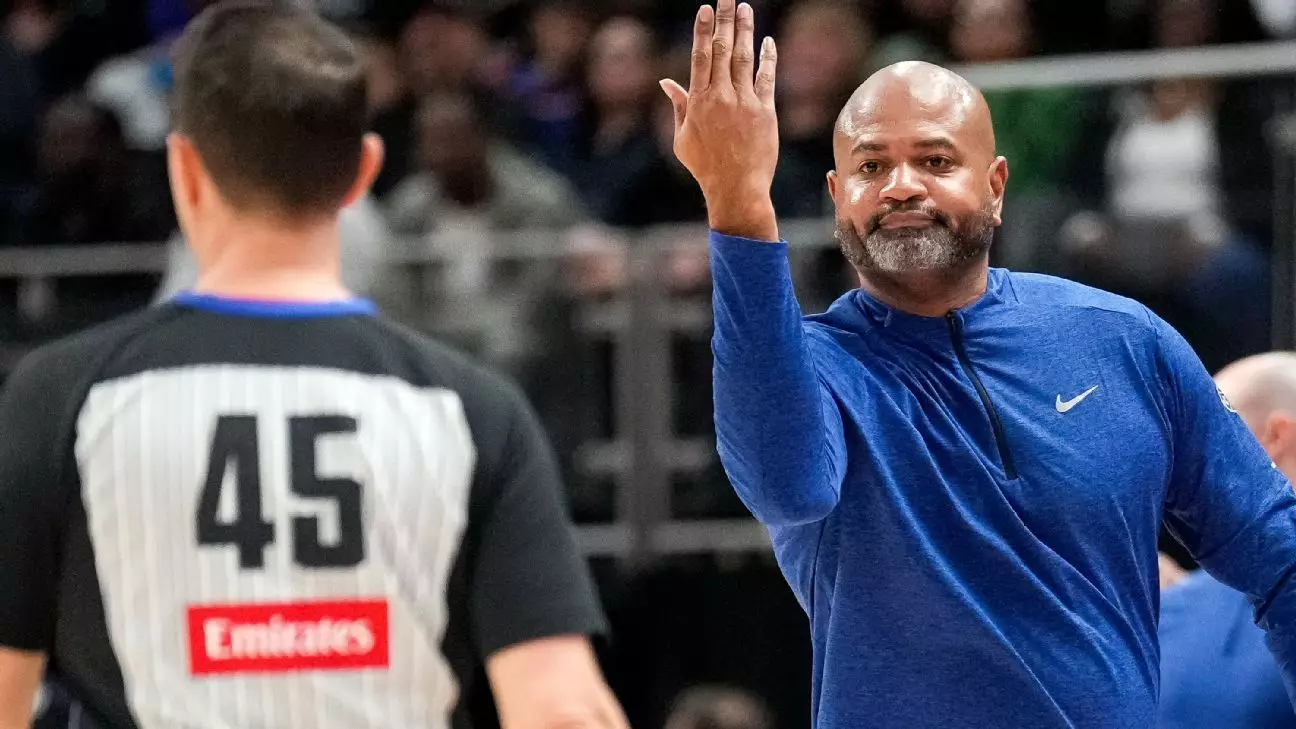In a highly charged clash between the Detroit Pistons and the Oklahoma City Thunder, the narrative swiftly shifted from the on-court competition to the alarming officiating that marred the game’s integrity. Coach J.B. Bickerstaff’s vehement outcry against the officials encapsulated the growing frustration within the basketball community toward questionable refereeing standards. During the notorious third quarter, the Pistons were slapped with five technical fouls, a moment that left fans and players alike in disbelief and outrage. When Cade Cunningham received two technicals in a mere 48 seconds, resulting in his ejection, it became clear that emotions were at a boiling point, further ignited by Dennis Schroder’s own technical foul for confronting the officials.
Understanding the Context: A Pattern of Disrespect
Bickerstaff’s critique was not merely an expression of anger but a deep-seated frustration regarding what he described as “disrespect” from the officiating crew. He presented specific instances during the game that raised eyebrows; a player tripping over his teammate’s foot was reviewed for a “hostile act,” while a blatant elbow to a Pistons player’s neck went unexamined. Such inconsistencies in officiating create an environment of confusion and conflict, undermining the credibility of the rules that govern the game. The lack of accountability among officials is lamentable, as it has far-reaching implications on player morale, team dynamics, and ultimately, the spirit of competition itself.
The Ejection Epidemic: Are Players Being Targeted?
The ejection of Cade Cunningham not only highlighted the tensions inherent in the game but also raised questions about whether players are being unfairly targeted by officiating crews. Referees must find a balance between maintaining control of the game and allowing players to express their frustrations. However, Bickerstaff’s assertion suggests that the league’s attitude has shifted toward an overly punitive approach, where players are penalized for expressing their dissent, often in the heat of the moment. This method does little to foster an environment of respect between officials and players and rather fuels a growing animus.
The Ripple Effect on the Game
This pattern of contentious officiating could have detrimental effects on the league as a whole. Fans grow disillusioned when they sense that the outcome of games may rest more in the hands of officials than players. Bickerstaff’s comments following the game serve as a clarion call for change, advocating for a higher standard of officiating that aligns with the true essence of competition. Oklahoma City coach Mark Daigneault acknowledged the metrics indicating a trend of lax officiating just prior to their encounter, suggesting that some crews may operate under different standards, creating inconsistency that teams like the Pistons are left to navigate.
The Path Forward: Advocating for Change
The reactions from Bickerstaff and his team position them as defenders of integrity and fairness in the sport. What they highlight is a pressing need for the league to initiate meaningful conversations about officiating standards. This could involve revisiting training protocols, enhancing accountability, and institifying a transparent review process to address grievances about officiating decisions effectively. The event was not merely another chapter in the Pistons’ season; it was a stark reminder that, in sports, respect and fair play extend beyond the court—encompassing the realm of officiating, which must be held to a higher standard for the benefit of players, coaches, and fans alike.


Leave a Reply